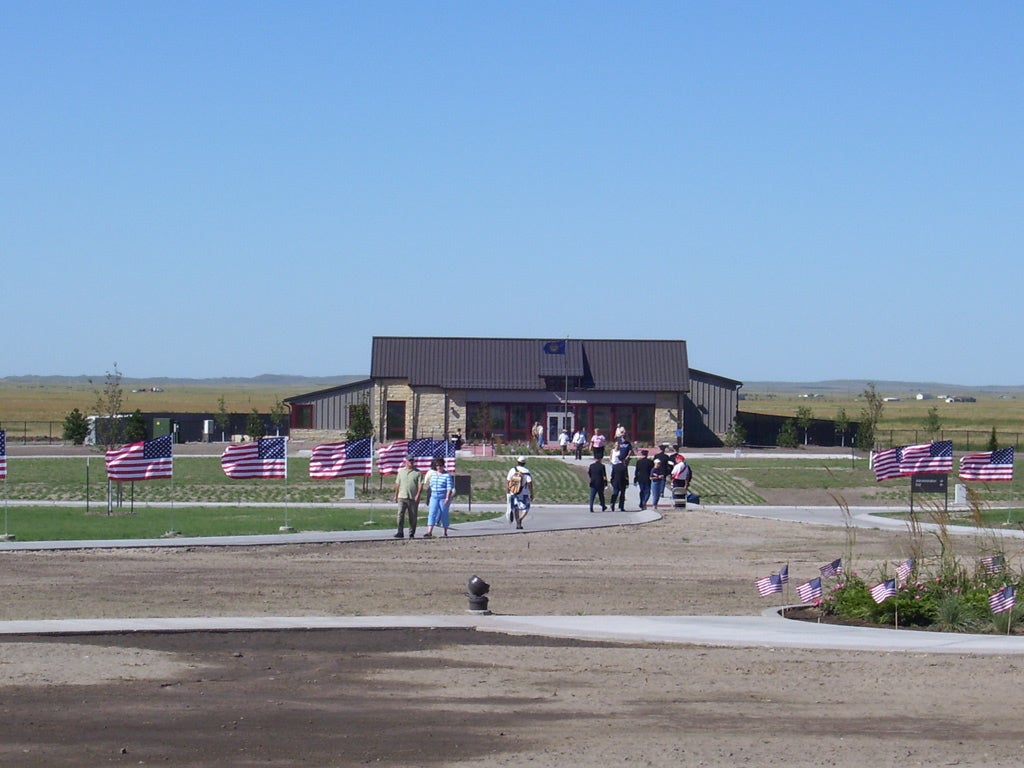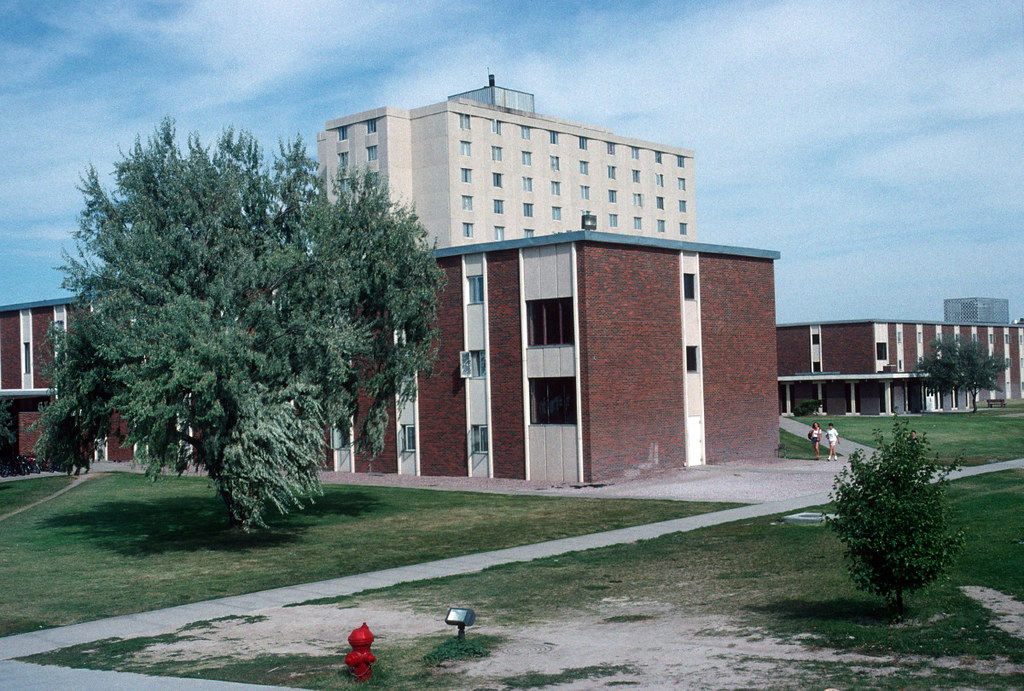NEBRASKA LEGISLATURE
The official site of the Nebraska Unicameral Legislature

Sen. Steve Erdman
District 47
The content of these pages is developed and maintained by, and is the sole responsibility of, the individual senator's office and may not reflect the views of the Nebraska Legislature. Questions and comments about the content should be directed to the senator's office at serdman@leg.ne.gov
June 8th, 2018

This week I would like to give you an update on my recent work at the Capitol and elsewhere around the State and let you know about some important things happening in District 47.
On June 5 we held another Building Maintenance Committee meeting at the University of Nebraska Medical Center (UNMC) in Omaha, Nebraska. The committee replaced the roof over the maintenance building which houses the boilers and generators which feed the entire campus. We replaced a leaking 100 year-old roof with deteriorating wooden rafters with a new steel roof with steel rafters. This work was necessary because UNMC can never afford to experience a power outage due to the many surgeries and delicate research being conducted at the medical school.
Speaking of the University, the University of Nebraska landed a major defense contract on June 6. The National Strategic Research Institute renewed a five year contract with the Air Force, which will divert $92 million from the Department of Defense to the University of Nebraska in order to continue funding their anti-terrorism research.
Following our visit to UNMC we toured the Gerald R. Ford Conservation Center. The Building Maintenance Committee repaired the building’s foundation. The Ford Conservation Center is a very unique State building located next to the house where former U.S. President, Gerald R. Ford, was born in Omaha. The Ford Conservation Center restores artifacts from the past. They have laboratories which restore old objects, paintings, and papers. While many of these artifacts come from Nebraska’s past, some are much older than our history as a state. For instance, one of the objects currently being restored at the center is a portion of fence from the ancient Roman Empire.
When I spoke at the State Veteran Cemetery in Alliance on Memorial Day, I could not help but notice how much space was still available at the cemetery. Only 291 people had been buried there since the cemetery opened back in 2010. Consequently, the State Veteran Cemetery in Alliance would like the public to know that: “The State of Nebraska recognizes the sacrifices of all veterans in honor of them,” and that “services are provided at the State Veteran Cemetery without regard for residency.” They would also like our veterans to know that there are no burial charges for veterans or their eligible dependents. If you have questions, please call the Nebraska Department of Veterans Affairs in Alliance at (308) 763-2958.
Finally, I have been in communication with Sen. Groene, who is chair of the Education Committee at the Capitol, concerning a new bill on Americanism. Two years ago, Sen. Lydia Brasch introduced LB 308, a bill that would have updated our public schools on Americanism, but the bill was indefinitely postponed on April 18 of this year. Sen. Brasch has reached her term limits and won’t be back next year. So, someone else will have to take up the cause for next year’s legislative session.
Americanism first became law in our public schools back in 1940. However, the 1940 statute made it a misdemeanor crime, enforceable by the Sheriff, if a teacher failed to follow the statute. SCOTUS has since ruled that the 1940 statute violates a teacher’s right to free speech. While a teacher cannot be arrested for failing to teach Americanism, he or she can still be fired. Therefore, Sen. Groene’s proposal would put enforcement of the statute into the hands of the State Board of Education, and replace the word ‘Americanism’ with ‘American Citizenship.’
The bottom line is that our public school students need to be adequately versed in American values. They need to know our history well, develop a love for liberty, have the fire for justice fanned into flame within their hearts, learn to respect our flag, and be instilled with a deep sense of loyalty to our great republic. Failure to instill our students with these kinds of American values will only lead to our eventual demise as a nation.
June 1st, 2018
Which is worse for the University of Nebraska: Being censored by the American Association of University Professors (AAUP) for failing to renew the teaching contract of English Department lecturer, Courtney Lawton, or having some of the university’s professors placed on Turning Point USA’s Professor Watch list for discriminating against conservative students? Actually, neither of these two lists should matter nearly as much as the opinion of the people of Nebraska. Because the University of Nebraska is a land-grant university, they are accountable only to the people of the State. Therefore, the only opinion which should really matter to the administration is the opinion of the people of the great state of Nebraska.
The AAUP has a radical agenda. The AAUP’s stated mission of “…promoting the economic security of those who teach and research in higher education…” is really nothing more than a bad euphemism for hiding the fact that they were created for the sole purpose of protecting the propagandizing, the indoctrinating, and the unhinged shenanigans of its far Left-wing, extremist professors. This is why the Nebraska chapter of the AAUP is comprised of some of the most radicalized professors from UNL’s English Department. Consequently, I would personally consider it to be a badge of honor to be censored by the AAUP.
Liberal-progressivist and extremist professors from UNL’s English department, such as Amanda Gailey, Julia Schleck and Stephen Ramsay, who represent the AAUP at UNL, have been threatening to recommend UNL for censorship by the AAUP. Unless they get their way, they will recommend that UNL be placed on the AAUP’s Censorship List. In their opinion UNL should be censored because of the way they handled the situation regarding the dismissal of English Department lecturer, Courtney Lawton, after she harassed and berated sophomore student, Kaitlyn Mullen, as she tabled for Turning Point USA last fall. Gailey, Schleck and Ramsay believe the university’s administration did not follow the proper policy and procedure for dismissing a lecturer, and they believe the administration simply caved into the political pressure placed upon them by politicians like me.
To their credit, University President Hank Bounds, and Chancellor Ronnie Green are not taking the criticism of the AAUP lying down. Last week they responded publicly by pointing out the inaccuracies of the AAUP’s evaluation of the situation. For instance, Chancellor Green submitted a letter to the AAUP on May 25 specifically pointing out how they had ignored corrections he had made to the record in a letter he had hand-delivered to them back on April 17. How refreshing it is to finally see the administration leading! I commend Bounds and Green for standing up to the AAUP.
The AAUP has never been concerned with the facts of this case. For instance, they have never recognized the fact that Lawton blocked access to Mullen’s TP-USA table, and in their Nov. 27 Open Letter to the University of Nebraska, which was signed by Gailey, Schleck, and Ramsay, they stated that I was “strongly tied to Governor Pete Ricketts,” even though I had never even talked with the Governor about this situation. Moreover, after Nebraska’s AAUP President, Donna Dufner, had stated that the university had handled the situation correctly, she found herself being bullied into resigning by Schleck, who replaced her after serving for only one month with Patricia Wonk Hill, the same UNL Sociology research professor who was found guilty last month in a Virginia court for spray painting the house of NRA spokesman, Chris Cox. Need I say more?

Julia Schleck
May 25th, 2018

The following is an abridged version of a Memorial Day speech I delivered in Alliance and Hemmingford:
Memorial Day is a day of remembrance for those who have died while serving our country. Today we enjoy the blessings of liberty, but freedom is never free. It was earned by the valor, bravery, and sacrifice of millions of veterans who have fought our wars from the War for Independence to the current War on Terror. Their selfless service and sacrifice continues to be an inspiration to all of the citizens of our great nation.
On December 28, 2000 Congress passed the National Moment of Remembrance Act out of a concern that Memorial Day was losing its significance among our nation’s youth. Congress passed the Act in order “to reclaim Memorial Day as the sacred and noble event that that day is intended to be.”
May we never forget those soldiers who bought our liberty by paying for it with the full price of their lives. Therefore, I encourage you to take the opportunity this Memorial Day to remember those who gave their most precious possession of all in order to secure your freedom. I hope you will remember to pause at 3:00 p.m. for a moment of silence in order to pray a prayer of thanksgiving to God and to honor our fallen heroes.
The early patriots of our country were mostly uneducated farmers who set out to win what many considered to be an unwinnable war against the British. During those days a simple call rang out throughout the countryside: “Go to the bridge!” These minutemen understood that an important strategy for winning against the overwhelming forces of the Red Coats was to hold the bridges and keep the enemy out of the open fields. And so it was at the Old North Bridge in Concord, Massachusetts. In order to hold that bridge, they had to ban together as one united force and take a bold stand against the king’s armies. Then, as Ralph Waldo Emerson would later write, a shot rang out which was heard around the world, and all of world history pivoted at that moment in time.
The situation in America today is no different than it was back in the days of the Revolutionary War. We must continue to unite together as one force against our common foe. The call to “Go to the bridge!” is essentially the same today as it was 243 years ago at the Battle of Concord. The only things which have really changed are the identity of our enemy, their tactics of terror, and the size and quality of our weapons.
Therefore, let us not take lightly our call to action to keep America as the greatest nation on earth. We must continue to defend our republic. May we hearken the cry of our Founding Fathers to never allow our great freedoms to be taken from us. Today and every day we must remember those who have taken the bullet on our behalf that we may continue to enjoy our God-given rights of life, liberty, and the pursuit of happiness. But, let us also ready ourselves to take up this noble cause and advance it forward. On this very sacred holiday, let us be reminded of the words that President George W. Bush spoke on September 20, 2001 following the collapse of the twin towers in New York City: “We will rally the world to this cause by our efforts, by our courage. We will not tire; we will not falter; we will not fail.”

May 18th, 2018

Reducing the cost of prescription drugs is something that greatly concerns me, especially because I serve on the Legislature’s Health & Human Services committee. Many of us have heard about how much cheaper prescription drugs are in Canada compared to the United States, and I occasionally get asked the question about what can done legislatively to import these drugs from Canada. Well, now there is some hope out on the horizon. So, today I would like to report about what is being done to make prescription drugs from Canada available to customers in the United States.
The State of Vermont is now leading the way. Last Wednesday Gov. Phil Scott of Vermont signed a bill which could soon make Canadian drugs available to the citizens of Vermont. The citizens of Vermont won’t have immediate access to these Canadian drugs, though. This is because the new law directs the Agency of Human Services, Vermont’s version of a Health & Human Services committee, to design a workable program by January 1, 2019. The program would designate a wholesaler, certified by the U.S. Department of Health & Human Services, who would import and distribute the drugs to pharmacies around the state. The drugs would also have to pass FDA standards for safety and effectiveness. Unfortunately, citizens from other states won’t be allowed to purchase any of these drugs.
Does all of this sound just too good to be true? Well, maybe. There are still a number of hurdles that lawmakers in Vermont will need to clear before access to Canadian drugs can become a reality in their state. Standing directly in their way is the federal government.
The biggest hurdle to clear is the federal government of the United States. Just because lawmakers in Vermont made a new law does not mean that the feds would have to play along. For instance, there is no mandate requiring the U.S. Department of Health & Human Services to certify Vermont’s wholesaler, nor is there any mandate requiring the FDA to approve Canadian drugs for sale anywhere in the United States.
The origin of the drugs is another problem. The feds worry that a wholesaler would have no way of verifying that the drugs were actually manufactured in Canada instead of some other country such as China or Mexico. Add into the mix the current opioid crises, and you can see why the feds are wary about Vermont’s new law. Because the Canadians currently do not manufacture enough drugs to supply every pharmacy in America, the feds worry about the threat of non-Canadian, foreign-made drugs crossing our borders.
When he campaigned for President, Donald Trump talked about importing drugs from Canada and railed against the profits of the pharmaceutical companies. However, when President Trump released his plan for lowering the cost of prescription drugs earlier this month, it did not include a plan for importing drugs from Canada.
Americans pay more for prescription drugs than any other country in the world. The average American spent $1,162 for prescription drugs in 2015, according to the Organization for Economic Cooperation and Development. By way of comparison, citizens in the United Kingdom paid only $497. That’s less than half of what we paid!
Be assured that lawmakers in Nebraska are keeping an eye on Vermont. If Vermont succeeds in obtaining these Canadian drugs, you can expect other states to follow suit. The bottom line, though, is that the price of prescription drugs for sale in America must come down. For many of us, our lives depend upon it!
May 15th, 2018
Now that the legislative session is over, it is time to reflect on what actually was accomplished this year and how it affects all Nebraskans. Although we balanced the budget, we did so by taking more money out of the state’s rainy day fund. While some cuts were made to the budget, the income for some state agencies actually increased. One such state agency was the University of Nebraska system.
While the Appropriations Committee cut the University’s spending by 1 percent, instead of the Governor’s recommended 4 percent, page 13 of the Independent Auditor’s Report shows that operational revenues for the University of Nebraska system have actually increased by 6 percent. So, the 1 percent decrease in state funding made by the legislature this spring means that operational revenues for the University of Nebraska system have only increased by 5 percent instead of by 6 percent.
If operational revenues have truly increased, and the Independent Auditor’s Report says they have, then why were cuts made to programs at the University of Nebraska – Kearney (UNK)? UNK is cutting three sports programs, namely baseball, golf, and tennis. It is peculiar that UNK would make the decision to cut the baseball program, especially after a recent fundraiser had raised $170,000 for the program.
The decision to make these cuts to these three sports programs was the sole decision of UNK Chancellor Douglas A. Kristensen. When University President Hank Bounds testified before the Appropriations Committee earlier this year, he was asked who would make the decisions about cutting programs. Bounds answered that each of the chancellors would make these decisions for their own schools.
UNK claims that eliminating these three sports programs will save the university $450,000 annually. But, what they haven’t considered is the fact that these 60 athletes, who would have attended UNK and played on their sports teams, would have each brought with them into the university an additional 1.2 students. Tuition costs alone (set at $7,512 for 2018-2019) for these additional 72 students would bring $540,864 into the University. So, the argument that cutting these sports programs would somehow save the university money, fails by way of simple math.
When it comes to balancing the budget at the University of Nebraska, administrators need look no further than their own administrative costs. Since 2011 administrative costs have increased 40 percent while new student enrollment has increased only 6 percent. On September 16, 2016 the Board of Regents gave University President Hank Bounds a 6 percent salary increase, which became retroactive back to July 1, 2016. In spite of the Governor’s announcement on July 16, 2016 that there should be no more salary increases, no unnecessary travel, and no new hiring, Bounds gave 3 percent salary increases to each of the chancellors in the University of Nebraska system.
So, the time has come for all concerned Nebraskans to ask Chancellor Kristensen: Why are you really cutting baseball, golf and tennis? If Kristensen won’t explain why he is cutting these programs, then perhaps it is time to ask the Regents. The Regent for District 6 is Paul R. Kenney and he can be reached at (308) 826-2507.

May 11th, 2018

At the Nebraska Legislature I serve as the chairman of a special committee known as the Building Maintenance Committee. The Building Maintenance Committee is an oversight committee which oversees the work of the 309 Task Force. The 309 Task Force does deferred renewal work on our various state buildings.
On May 1 we held a meeting of the Building Maintenance Committee at Chadron State College. During the meeting we discussed the various projects that the 309 Task Force will be working on over the course of the next few months. Most of the projects that the 309 Task Force will be taking on this month will take place right here in Nebraska’s Panhandle.
In the coming days, the 309 Task Force will doing many renewal projects at Chadron State College. That work will include the installation of a new fire sprinkler system at their recently completed heating plant, a fire hydrant replacement, and a new roof for the Armstrong Sports Complex. Inside the library, the 309 Task Force will replace lighting, replace windows, and remodel the restrooms in order to make them compliant with the 2010 standards of the Americans with Disabilities Act (ADA).
Those of us living in the Panhandle appreciate the fact that we don’t have to send our students far away to attend college. By completing these renewal projects at Chadron State College, we will hopefully make the campus better for those who are currently enrolled and attract more students to study in Western Nebraska.
The 309 Task Force will also do some much needed renewal work at Chadron State Park. At the Trading Post, for example, the 309 Task Force will do some foundation repair work and remodel the restrooms in order to make them ADA compliant. The 309 Task Force will also upgrade cabins 101-106 in order to make them ADA compliant.
Chadron State Park is our state’s Garden of Eden. It did not take much thought by our forefathers nearly 100 years ago to make the decision that Chadron State Park should become our state’s first state park. Those who have traversed the 100 miles of trails throughout the park by way of hiking, mountain biking or horseback riding can testify to the beauty of the landscape. Chardon State Park’s natural beauty is the byproduct of several buttes and canyons which meander throughout Nebraska’s Pine Ridge.
The work that the 309 Task Force is starting this month at Chardon State Park will help to ensure that those with disabilities will also be able to take in the natural beauty of the park and that all visitors to the park will want to return someday. If you have never visited Chadron State Park, make it a point to do so this year. You won’t regret it!

April 27th, 2018
Today we three Nebraska State Senators, Sen. Steve Erdman, Sen. Tom Brewer, and Sen. Steve Halloran, would like to express our disapproval of the recent anti-gun protests by certain faculty members from the University of Nebraska – Lincoln (UNL). Following the incident last fall regarding UNL’s English Professor Amanda Gailey and English Graduate Teaching Assistant Courtney Lawton, who together harassed sophomore student Kaitlyn Mullen, as she tabled for Turning Point USA, we advised the university’s administration to develop a code of conduct for the faculty. UNL has established a code of conduct for the students, but no such code of conduct exists for the professors and staff. We three have maintained from the beginning that the incident that happened last fall was a conduct issue, not a free speech issue, although free speech continues to be a problem for the University.
The conduct of UNL’s radicalized professors continue to spiral out of control because the administration refuses to deal with the issue. Once again radical professors at UNL have made national headlines because of their inappropriate and illegal behavior, and their unhinged conduct will only continue to grow worse until the administration decides to do something about it.
Earlier this month Amanda Gailey staged an anti-gun protest in front of the private home of Chris Cox, a lobbyist for the National Rifle Association (NRA). Gailey coordinated her protest to coincide with a court date set for Patricia Hill, a UNL Sociology research professor, who had earlier been charged by police in Alexandria, Virginia for using red spray paint to mimic blood as she vandalized the Cox’s home in October 2017 and again in January 2018. Gailey harassed Cox, along with his wife and children, as she demonstrated in front of their home with a sign which read, “NRA Chris Cox profits off dead kids.” Hill is scheduled to appear in court again in Alexandria, Virginia on May 21 to face another Class 1 misdemeanor charge.
Propriety, civility and respect for opposing viewpoints used to be the hallmarks of a good education at UNL. But, progress in civil discourse is more easily undone than achieved. For instance, Charles Henry Oldfather, for whom Oldfather Hall near Memorial Stadium is named, once said: “Truly the history of mankind shows that the steep climb from barbarism is 5000 years up and five minutes back.”
Professors are supposed to be models of right behavior. But, instead of modeling propriety, civility, and respect for opposing viewpoints these UNL professors have pushed the envelope of acceptable conduct out to include illicit behavior. These radicalized professors are incapable of respecting any point of view other than their own, and civility is precisely the value they aim to shatter. For instance, in an attempt to justify her inappropriate protesting in front of Cox’s private residence, Gailey told the Washington Post that “People need to stop treating these predatory, sick people like they’re just a neighbor.”
Whether University President Hank Bounds or Chancellor Ronnie Green will admit it or not does not negate the fact that these radicalized professors now represent the values of the University of Nebraska system. These radical professors have now become the face of the University of Nebraska to the rest of the state, to the rest of the country, and even to the rest of the world. Although Gailey and Hill hardly represent the values shared by the majority of Nebraskans, their inappropriate and illicit behavior now reflects what the University of Nebraska system tolerates as acceptable faculty conduct. For instance, in response to their protests, Leslie Reed, a UNL spokesman, dismissed the behavior of Gailey and Hill by saying, “They did this on their own time and were expressing their own beliefs and it really has nothing to do with the University.” We beg to differ.
Ask yourself this question: “Would my job permit me to engage in this kind of behavior?” If not, then the behavior of Gailey and Hill is undermining what Oldfather once valued as the functionality of a liberal education. By functionality, Oldfather meant that a liberal education should set up university students to succeed on the job. Because the administration refuses to confront the issue of faculty conduct, we believe the University of Nebraska is now setting up students to fail in the real world where conduct matters.
April 20th, 2018

LB496 allows new construction of workforce housing to be eligible for Tax Increment Financing (TIF). On the final day of the Legislative session I tried to kill LB496 because I knew how it would raise property taxes. The Nebraska State Legislature passed LB496 over and against my objections to the bill. There were several reasons to oppose this bill and I would like to share some of those reasons today, but the most important reason of all is that LB496 will increase your property taxes.
LB496 offers no clear definition of what constitutes workforce housing. For instance, the bill describes workforce housing as “housing that meets the needs of today’s working families,” and “housing that is attractive to new residents considering relocation to a rural community.”
The original purpose of TIF financing was to redevelop substandard and blighted areas within urban neighborhoods. For instance, Nebraska State Statute 18-2101 states that “land cannot be added to an existing community redevelopment area…unless the additional land is declared blighted or substandard…” So, we should ask if newly constructed workforce housing counts as the redevelopment of blighted or substandard properties.
As Americans we value free-market capitalism. But, TIF financing disrupts our free-market principles. To the contrary, I believe that whenever there is demand for new homes, private investors will build them. Government does not need to be the answer for every problem as some like to believe.
Characteristic of all other government funded programs of this kind, TIF will be nearly impossible to get rid of. Once contractors get a taste of TIF financing and learn that they can always use TIF monies to fund their construction projects, TIF financing will quickly become the norm.
Whenever workforce housing gets financed through TIF, property taxes get diverted away from local units of government. While property taxes from the base of a TIF funded property will continue to go to local units of government, property taxes gleaned from the new construction will not. This results in a net loss of revenue for our local units of government, such as schools. For instance, instead of being used to finance local units of government, property taxes collected from new construction on TIF financed properties will go to paying back bond holders. In Douglas County, for example, local units of government missed out this year on $37 million in property taxes collected from new construction on TIF financed properties.
Whenever workforce housing gets financed through TIF, other property owners have to make up the difference in lost property tax revenues. For instance, if ten new houses get built with TIF financing and ten new families with children move into those new homes, then the other property owners living in the same school district will have to pay for the extra costs associated with educating those children in the public schools. Consequently, TIF financed workforce housing raises the property taxes of all those who purchased their homes in the standard way.
LB496 was a bad bill for Nebraska. TIF financing for the construction of workforce housing is not necessary. Contractors who want to build new houses in our state can fund them in the traditional way without disrupting our free market economy. When Legislators voted for LB496, they were voting for a property tax increase. Unfortunately, government often picks winners and losers and uses your tax dollars to do it. To the contrary, I stand for less taxes and less government!
April 13th, 2018

The second session of the 105th Legislature is now over. Overall, very little meaningful legislation got passed this year. The Legislature could not agree to reduce your property taxes, to reform the way agricultural land gets valuated for tax purposes, to call for an Article V Convention of the States, or to secure free speech for our students at the University of Nebraska. In my estimation, this year’s legislative session was essentially a wash.
Instead of passing fiscally responsible legislation for the State, the Nebraska State Legislature passed LB873, a bill that will create more land banks, which will only increase your property taxes. A land bank is a public authority created to hold, manage and develop properties. The Legislature also passed LB496, a bill to increase Tax Increment Financing (TIF) for the building of workforce housing. LB496 will also increase your property taxes.
In a last ditch effort to get property tax relief, 13 State Senators signed a letter and sent it to John Gale, our Secretary of State, calling for a special session of the Legislature in order to address the subject of property tax relief. Only ten Senators were needed to sign the letter, but 33 Senators will have to express their favor for a special session in order for it to happen. The deadline for the Senators to respond is April 23. Of no surprise to me, Governor Ricketts is not in favor of calling for a special session of this kind.
On a much more positive note, the petition drive to put a measure for property tax relief that is similar to my bill, LB829, on the November ballot is progressing very well. The Lincoln Strategy Group, the company Trent Fellers hired to collect the signatures for the ballot initiative, has reported that the task of collecting signatures for the petition drive has been easier than when they collected signatures to re-instate the death penalty. Therefore, I am confident that we will get enough signatures to meet the July 5 deadline and to put this measure on the November ballot.
The fact that we’ve had to resort to a petition drive in order to get meaningful and substantial property tax relief for all Nebraskans needs to be underscored. Meaningful and substantial property tax relief is the number one issue that Nebraskans care about and it is an issue which has united both urban and rural citizens alike in our state. Unfortunately, the majority of the Senators who comprise our State Legislature and our Governor do not understand this desperate need for meaningful and substantial property tax relief nor do they agree that this should have been the number one priority for the Legislature this year.
I have taken my service to the constituents of Legislative District 47 and to all Nebraskans very seriously. I am very disappointed that the Legislature has failed to deliver on property tax relief. This issue continues to weigh heavily upon my heart, especially when I talk with constituents and cannot report that we have fixed the problem. Nothing is more important to me than solving the problem of property tax relief. However, there remains hope for the future.
The citizens of the State of Nebraska comprise our State’s second legislative House. When the Legislature fails to deliver the kind of legislation Nebraskans need most, it becomes incumbent upon the people of the State to act and to assert their own will. Therefore, I want to encourage all of my readers to sign the petition and to vote for property tax relief in the November election.
Thank you for allowing me to serve as your State Senator.
April 6th, 2018
Paying for prescription drugs has become a big problem for many Americans as well as for legislators. Legislation designed to control the costs of prescription drugs often stalls in the Legislature. For instance, after Sen. Sara Howard introduced LB862, the Prescription Drug Cost Transparency Act, the bill stalled in committee. Therefore, this week I want to expose what the pharmaceutical companies do to raise the costs of your prescription drugs and what you can do about it.
It may be cheaper for you to pay for your prescription drugs out of pocket than to pay your health insurance company’s co-pay. A recent study conducted by the University of Southern California’s Schaeffer Center for Health Policy & Economics found that customers overpaid for their prescription drugs 23 percent of the time.
The practice of charging copays which are higher than the actual cost of prescription drugs is called a “clawback”. Middlemen who process prescription drug claims for health insurance companies oftentimes make it a practice to claw back extra money from their insured clients when they check out at the pharmacy. For instance, if your co-pay is $10, but the actual cost of your prescription drug is only $7, then you are essentially giving an extra $3 to your health insurance provider.
It does not seem to matter whether or not states have passed anti-clawback laws. Health insurance companies have found ways to get around these kinds of state laws. For instance, some insurance plans prohibit pharmacists from volunteering information about getting cheaper prescription drugs. Therefore, the burden falls upon the consumer to ask the pharmacist if there is a cheaper way to pay for the drug. Six states have passed anti-gag laws to prevent insurance companies from gagging their pharmacists in this way, but Nebraska is not one of these six states.
According to Sydney Lupkin of Kaiser Health News, the top 20 prescription drugs with clawbacks are these: Hydrocodone acetaminophen, levothyroxine sodium, azithromycin, Lisinopril, fluticasone propionate, simvastin, atorvastatin calcium, omeprazole, amoxicillin, amlopidine besylate, sertraline hydrochloride, amox trihydrate/potassium clavulanate, zolpidem tartrate, Ventolin HFA (albuterol sulfate), Crestor (rosuvastatin calcium), metformin hydrochloride, hydrochlorothiazide, metoprolol cuccinate, citalopram hydrobromide, and prednisone.
If you are using any of these prescription drugs, it may be cheaper for you to pay for your prescription drugs out of pocket than to pay your insurance company’s co-pay. The only way to know if you are over-paying is to ask your pharmacist.
On another note, Nebraska State Treasurer, Don Stenberg, has released his 2018 edition of the Unclaimed Property Report. The Nebraska State Treasurer’s office holds more than $170 million in unclaimed money for more than 350,000 current and former Nebraskans. Last year, the Treasurer’s office paid out 16,748 claims totaling $15.3 million. For claims over $500 you will need to mail in a paper claim form. To see if the Treasurer is holding your unclaimed money or to file a claim please go to the State Treasurer’s website at www.treasurer.nebraska.gov or call my office at (402) 471-2616 and my staff will check the list for you.
Finally, although Speaker Scheer’s deadline passed last Friday for the Governor’s property tax relief bill to see another round of debate, he agreed to put LB947 back on the agenda. Without the needed 33 votes, though, LB947 will be dead. So, the petition drive for LB829 represents our best hope for property tax relief this year. Therefore, I want to encourage all of my readers to sign the petition.
Sen. Steve Erdman
P.O. Box 94604
Lincoln, NE 68509
(402) 471-2616
Email: serdman@leg.ne.gov
- Column (379)
- District Info (8)
- Events (6)
- Opinion (2)
- Press Releases (13)
- Uncategorized (4)
- Welcome (1)
You are currently browsing the District 47 News and Information blog archives for the year 2018.
-
Appropriations
Committee On Committees
Rules
Building Maintenance

Streaming video provided by Nebraska Public Media
